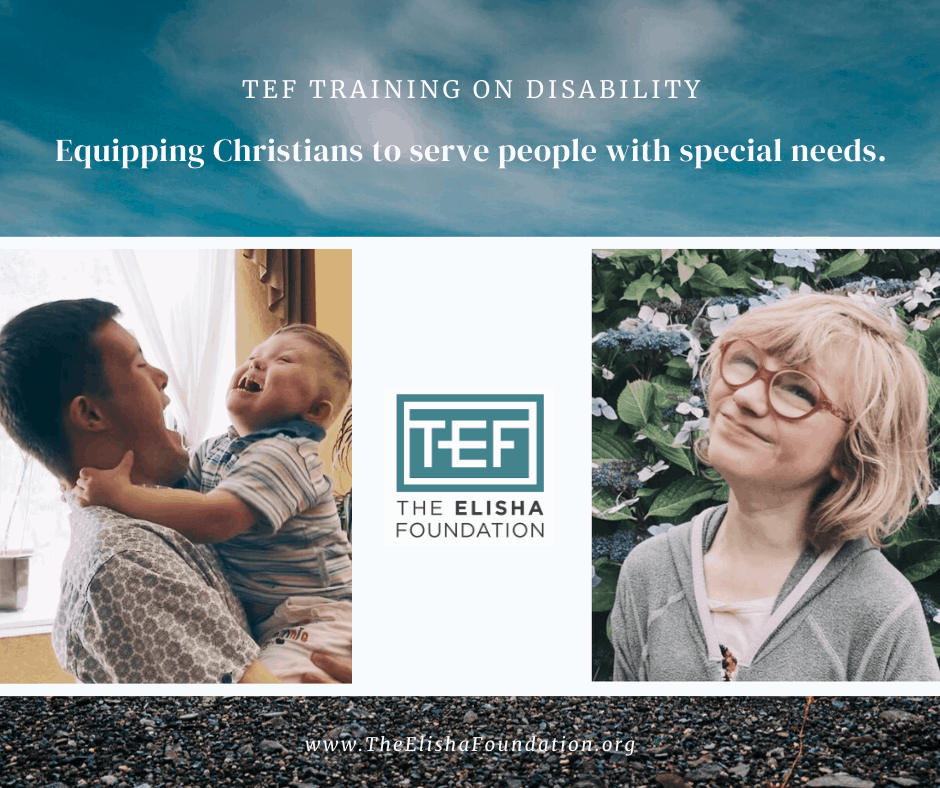Today’s post is sponsored by The Elisha Foundation, a ministry focused on the pursuit of Christ-centered transformation in the lives of those experiencing disability. They invite you and your church to take free, video-based training on serving people and families impacted by disability.
On a recent Sunday morning, I forgot my glasses in the car and realized it just as church was starting. Hurriedly, I stepped out of the church entrance only to be startled by the sound of a boy’s cry. Looking around, I saw Michael running towards me. His mother was very upset and trying to catch him. Even with Michael now in my grasp, he continued to cry. My attempts at comforting him began to take effect as his mother approached, spent and hopeless. They had never been to our church—our only interaction had been through a weekly sports outreach—but she thought she’d try our church that day. But now she only wanted to take Michael and leave. I encouraged her to stay, because I know Michael will be safe with us and will thrive in our church.
Michael has autism. He speaks just one word and is prone to outbursts. The entire situation was uncomfortable. Words did not come easily, and comfort for his mother seemed elusive. But the church is the safest and most welcome place for people experiencing disability, people like Michael and his mother.
These are not mere statistics, but people, people created in the image of God.
Over one billion people—15% of the world population—are experiencing disability. These are not mere statistics, but people, people created in the image of God. People, like Michael and his mother, who are hurting and need the Gospel and the loving community of the Body of Christ.
As Christians, we hold to the doctrine of imago Dei (Gen. 1:26-27) which establishes the value and worth of every person in the fact that they are image-bearers of God, regardless of ability or health. In her book, Fearfully and Wonderfully Made, Dr. Megan Best expresses it well:
…for we are all persons made in the image of God, in contrast to the modern philosophical view that personhood must be earned, the Bible teaches that our personhood is inherent because of the nature of the God whose image we reflect…
…With the value of a person firmly settled by the fact that they have been made in the image of God we begin to see that what we call “disability” is a strategy on God’s part to gain glory for his great name.
The church should be front and center in seeking to participate in this divine strategy to glorify God’s great name. Though disability is statistically prevalent, having experience or personal exposure to disability is not. Where we lack experience with a particular need or people group, we often feel uncomfortable, and inaction is the result; however, if we are equipped and biblically informed, we will glorify God in our response to the needs around us.
The Elisha Foundation has created online training for anyone interested in serving people impacted by disability. Training begins with a biblical foundation of God’s good design in disability. From there, two sections address serving the person with special needs and, more broadly, how the church can effectively minister to the family affected by disability. Our goal is to equip Christ’s church with simple and sustainable ways to build relational “ramps” into the lives of those experiencing disability.
This training is free, so please watch it and share it with others. We want to see the body of Christ encouraged, equipped, and empowered to serve those impacted by disability with the gospel of Jesus Christ. We pray for others, like Michael and his family, to be evangelized, discipled, and enfolded into the body of Christ. You can begin at https://theelishafoundation.org/training-signup.
Introduction to Training from The Elisha Foundation on Vimeo.










